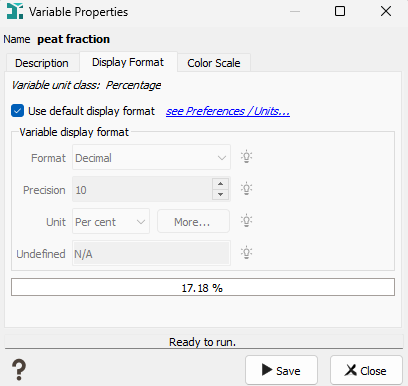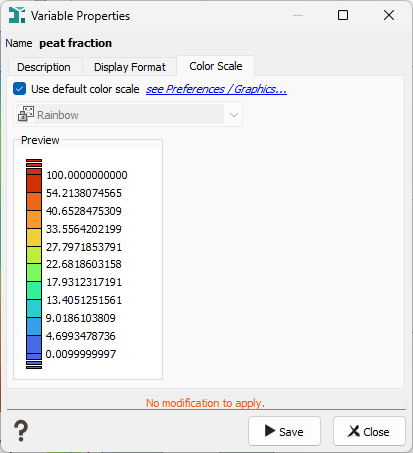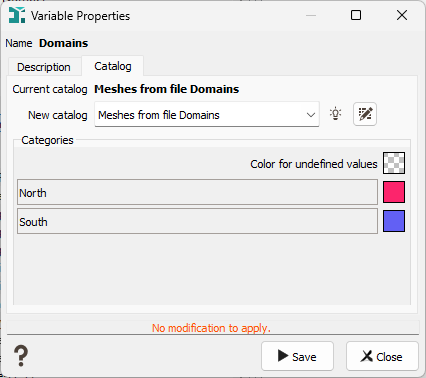Variable Properties
The variable properties panel, accessible by right click on a variable
Description
You can enter a Short name and a Comment.
Display Format
The Display Format is only available for numerical variables.
It is used whenever the variable is displayed, in the Messages window, in the Map view, the 3D Viewer and exported files.
As a reminder, the unit class associated with the variable is printed at the top of the interface.
Select the option Use Default Display Format to use the format (Format, Precision and Unit) specified in the Setting up Preferences parameters, otherwise:
-
Select a Format among Integer, Decimal, Free, Semi-free, Scientific.
- Integer: No decimal point is used. The values are truncated to the closest integer.
- Decimal: A number of digits is given, no exponent is used.
- Free: The most suitable format is chosen according to the value to be printed. This format may change inside the same printout even for the same variable.
- Semi-free: A number of significant figures is given.
- Scientific: A number of digits is given, the values are printed using an exponential format.
- Specify a Precision. The precision is the maximal number of digits (located on the right of the decimal point) to be used for the display.
- Specify the correct Unit, attached to a Unit class (Time, Surface, Grade...). Note each time the unit changes, a conversion is made and the values are changed. If the variable unit class is None, enter a Symbol. Note there is no conversion over unit Symbol.
- Undefined: Enter the specific string of characters encoding undefined values.
Color Scale
The Color tab is only available for numerical variables.
Select the option Use default color scale to use the color scale specified in the Setting up Preferences.
![]() to edit the color scale using the Color Scale Editor.
to edit the color scale using the Color Scale Editor.
Catalog
The Catalog allows to deal with the different categories of a categorical variable.
- If you want to modify the catalog associated with the variable, click on the New catalog selector and choose the new catalog to use. An association table lists the different categories of the variable and their corresponding proportion. The last column allows you to define which category of the new catalog matches with each old category.
-
Click on
 to access the Catalog Editor.
to access the Catalog Editor.
Click Save to apply the modifications.
Click Close to close the properties without saving the modifications.




